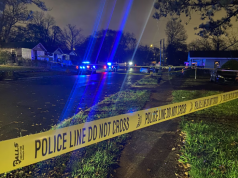By Jacqueline Gray Miller
Last year, the National Wildlife Federation grant concentration in Birmingham was triangular. At the onset of the pandemic, reassessing our plan, there was a pivot towards public health, returning citizens, and a youth summer work experience. On the year-to-date heels of those successes and while preparing for summer efforts again, we are also focusing heavily on the grant’s flooding, and infrastructure portions, specifically as it relates to finding options to mitigate flooding and create educational opportunities around the value of floodplains.
“Floodplains are some of the most valuable ecosystems on Earth. Typically located next to rivers, streams, and coasts, they are nature’s best defense against destructive floods. Floodplains provide essential habitat for wildlife, improve water quality, and protect human communities,” said Simone Lightfoot, National Director of Urban Initiatives and Environmental Justice, at the National Wildlife Federation.
However, floodplains are often considered prime building locations. Development along river corridors has significantly altered floodplain functions, leading to more frequent and severe floods, extensive loss of fish and wildlife habitat, and greater water supplies risk. Floodplains rarely receive the protection they deserve.
“As climate change leads to larger and more severe storms, rivers will need more room to flow. Protecting and restoring floodplains is essential if we hope to protect public safety, maintain water quality, and restore imperiled fish and wildlife,” said Lightfoot reviewing the 2017 floodplain map.
Birmingham Flooding and Wind Events
Geographically, the City of Birmingham sits in a valley in the western foothills of the Appalachian Mountains. The general flow of groundwater is westward, away from the City’s higher points, towards the Black Warrior and Cahaba Rivers. Other significant creeks in the area include Shades and Little Shades Creeks, which drain into the Cahaba River and Five Mile, Valley, and Village Creeks, which drain into the Black Warrior River.
These creeks, rivers, and tributaries, along with other waterways, contribute to the makeup of several watersheds that have some portion located within the city limits of Birmingham. The watersheds are Cane Creek, Valley Creek, Turkey Creek, Five Mile Creek, Village Creek, Little Shades Creek, Shades Creek, Big Black Creek, Cahaba River, and Little Cahaba River. Each of the 10 watersheds contains at least some portion of a 100-year floodplain. In Birmingham’s city limits, approximately 8,000+acres of the 100-Year floodplain are within the 10 identified watersheds’ boundaries.
The City of Birmingham is affected by several natural events; however, the most frequent are flooding and wind events, including Hurricanes. According to the City of Birmingham website, flash flooding resulting from rising creeks, rivers during a storm event, and localized flooding due to inadequate capacity or maintenance of the storm sewer drainage systems.
INVESTING IN BIRMINGHAM
In 2018, Birmingham City Councilor John R. Hilliard, District 9, connected to America’s most prominent education conservation organization to create direct opportunities for Birmingham residents. To date, partners include Build UP, the East Thomas Neighborhood Association, Ensley Reimagined, Pneuma Gallery, Slade Land Use, Environmental and Transportation Planning, LLC, and the Village Creek Human & Environmental Justice Society, Inc.
Many of the nation’s most significant environmental challenges and opportunities are in our urban centers. From increasing air and water quality to updating housing and transportation infrastructure, the possibilities are endless to improve people’s environments and decrease pollution and create local jobs. The National Wildlife Federation is committed to addressing the priorities of urban communities.
Simone Lightfoot serves as the National Director of Urban Initiatives and Environmental Justice for the National Wildlife Federation. She is responsible for the organization’s Birmingham grant efforts and is available at (313) 585-1052 or lightfoots@nwf.org.




